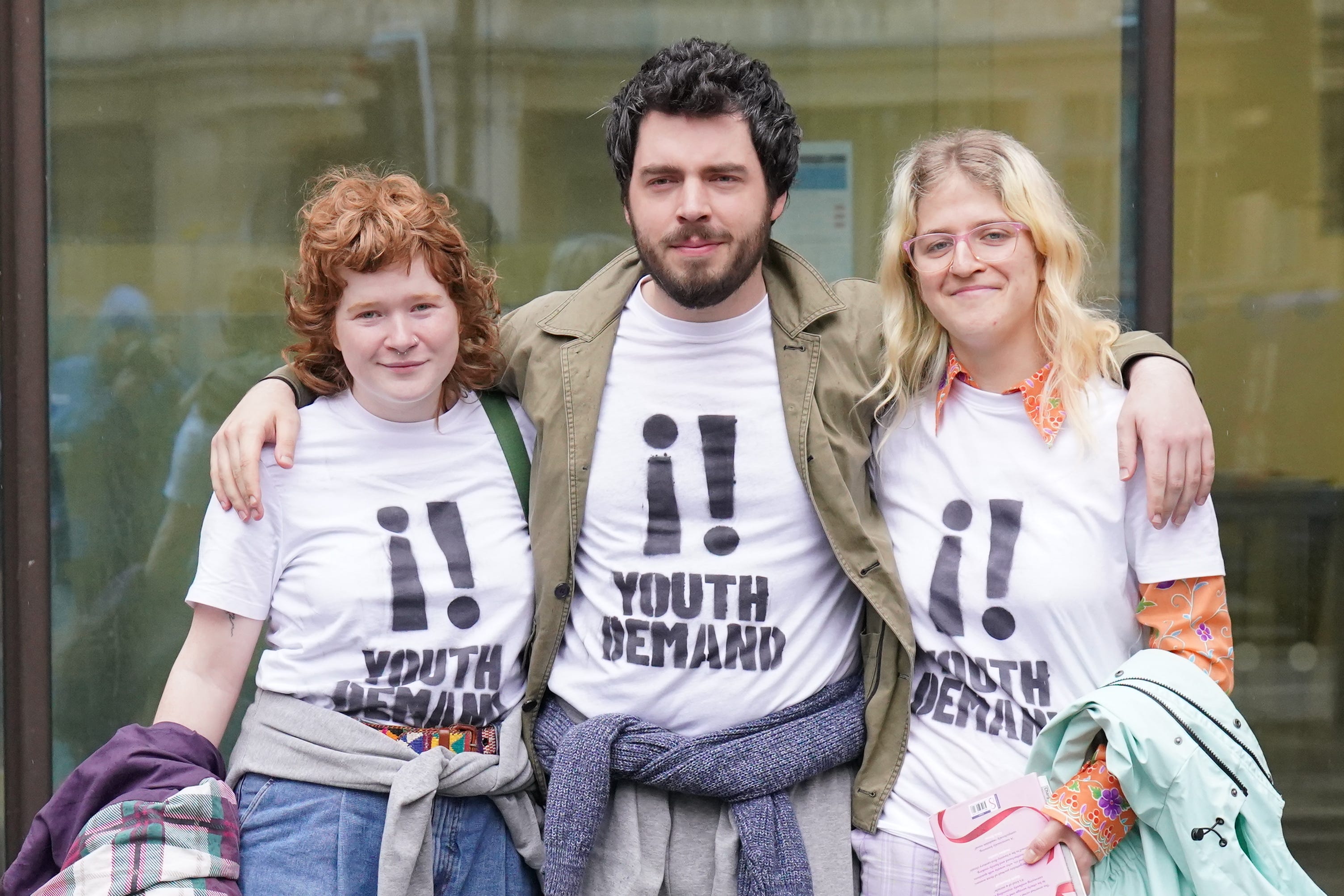Keir Starmer’s wife made to feel ‘a bit sick’ by protest outside home
Lady Starmer was with her son when they saw the Youth Demand demonstrators, a court heard.

Sir Keir Starmer’s wife felt “a bit sick” when she encountered a pro-Palestine demonstration outside their family home, a court has heard.
Victoria Starmer drove away in her car when she realised “people who were not agreeing with my husband” had gathered outside.
Leonorah Ward, 21, of Leeds, Zosia Lewis, 23, of Newcastle-upon-Tyne, and Daniel Formentin, 24, of Leeds, are on trial at Westminster Magistrates’ Court over the demonstration, charged with public order offences under Section 42 of the Criminal Justice and Police Act 2001 and with breaching court bail.
Activists from the group Youth Demand hung a banner outside the London house that read: “Starmer stop the killing”, surrounded by red hand prints, while rows of children’s shoes were laid in front of the door on April 9, it is alleged.
Giving evidence at the trial in person, Lady Starmer said: “I felt a bit sick, to be perfectly honest.
“I felt apprehensive and uncomfortable.”
Lady Starmer had just returned from a shopping trip with her son when they spotted the protesters, the court heard.
She drove around the corner before contacting Sir Keir’s office because she “didn’t want to stop and be obvious”, she told the court.
Asked by Andrew Morris, defending, if she knew it was a “peaceful protest”, Lady Starmer said: “It would look like a peaceful protest if it hadn’t been outside my home.”
Put to her by Laura O’Brien, representing Ward, that she did not want the added publicity from the demonstration, she said: “That was absolutely not in my mind.”
Formentin, representing himself, told the court: “I firmly believe that Keir Starmer is not accurately representing the country.
“There is an overwhelming sense that young people in this country do want a ceasefire in Palestine.”
Formentin said the protesters took “as many steps as we could to mitigate any threat”, and had no plans to confront anyone.
Put to him by Mr Hallam that they still would have been intimidating and threatening, Formentin said: “No.”
Put to them that they never contemplated how someone living in the house might find the protest distressing, he said: “I think it could be seen as distressing.”
Metropolitan Police Sergeant Mark Upsdale, who arrived at the scene at around 2pm and made the order for the arrests, also gave evidence at the trial.
Asked by prosecutor Jacob Hallam KC if the protesters were making their intentions known to the officers, he said: “They said there was a plan but ‘we are not willing to tell you’, or something to that effect.”
Sgt Upsdale said holding the protest outside somebody’s house, instead of outside the House of Commons or Sir Keir’s offices, was “inappropriate”.
He added: “I did not know if they were going to be there 10 minutes or a day.”
The court was shown footage shared on social media of the demonstration, which included clips of the three defendants speaking, and police body-worn footage of the protesters being arrested by officers outside the home.
Section 42 powers cover the harassment of a person at their home address if an officer suspects it is causing alarm or distress to the occupant.
Youth Demand describes itself as a “new youth resistance campaign fighting for an end to genocide”.
Children’s shoes have been used at a number of pro-Palestine demonstrations to signify the children killed in Gaza.
The same group sprayed Labour HQ with red paint, and later claimed that 11 people had been arrested in relation to that incident.
The three deny the charges, and the trial continues.
